
Introduction
In an era defined by climate change, rapid technological advancement, and shifting consumer behavior, one company has positioned itself at the forefront of the transportation revolution: Tesla, Inc. Founded in 2003, Tesla has rapidly transformed from a small startup into the most influential electric vehicle (EV) manufacturer in the world.
Led by visionary entrepreneur Elon Musk, Tesla isn’t just building cars—it’s reshaping how we think about energy, mobility, and sustainability.

1. A Vision That Changed the Industry
Tesla’s mission is simple yet powerful:
“To accelerate the world’s transition to sustainable energy.”
While many automakers hesitated, Tesla bet big on a fully electric future—without compromise on performance, design, or innovation. The company became the first to mass-produce electric cars that are luxurious, fast, smart, and highly desirable.
Tesla also pioneered direct-to-consumer sales, over-the-air software updates, and autonomous driving features, making it not just a car company but a technology company on wheels.

2. Tesla’s Most Iconic Vehicle Models
🚗 Model S – The Luxury Performance Electric Sedan

- Launched: 2012
- Category: Premium full-size sedan
- Key Features:
- Longest range in Tesla’s lineup (over 400 miles).
- Lightning-fast acceleration (0–60 mph in under 2 seconds in the Plaid version).
- Minimalist interior with a 17-inch touchscreen.
Model S set the benchmark for all electric luxury sedans and proved that EVs can outperform traditional gas-powered sports cars.
🚙 Model X – The High-Tech Family SUV

- Launched: 2015
- Category: Full-size electric SUV
- Key Features:
- Unique “Falcon Wing” rear doors.
- All-wheel drive with dual or tri-motor setups.
- Seating for up to 7 passengers.
The Model X combines futuristic design with practicality, making it the family EV of the future.
🚘 Model 3 – The EV for the Masses
- Launched: 2017
- Category: Compact executive sedan
- Key Features:
- Tesla’s most affordable model.
- Range up to 358 miles (Long Range version).
- Advanced safety and Autopilot capabilities.
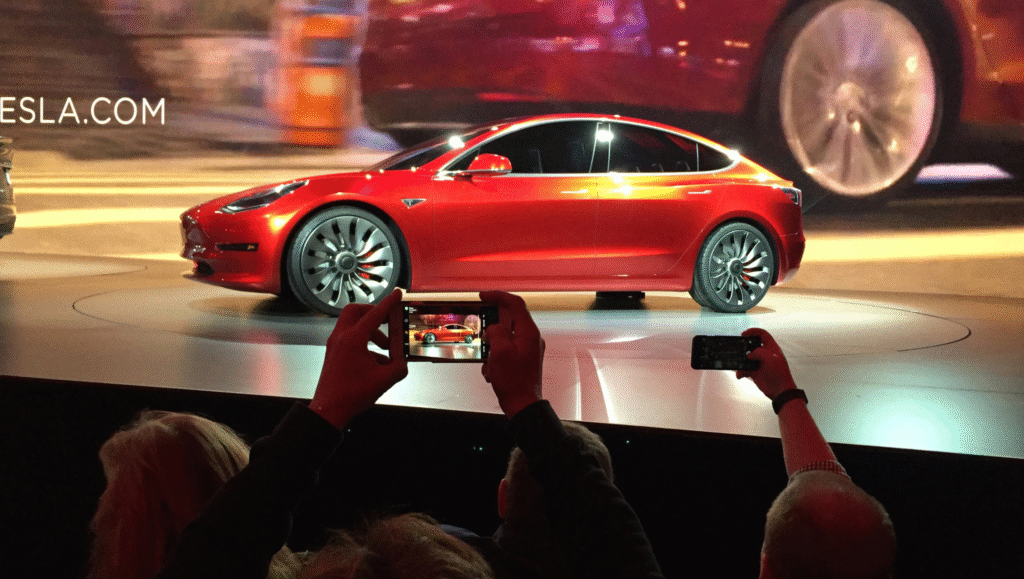
Model 3 became the world’s best-selling electric vehicle, bringing Tesla to a global audience and proving EVs can be both attainable and exceptional.
🚗 Model Y – The All-Around Electric Crossover
- Launched: 2020
- Category: Compact SUV / Crossover
- Key Features:
- Built on the same platform as Model 3.
- Optional third-row seating.
- Tesla’s current best-seller worldwide.

Model Y appeals to urban families and professionals looking for versatility, efficiency, and innovation in one sleek package.
🛻 Cybertruck – The Electric Pickup of the Future
- Revealed: 2019 (Production begins late 2023–2024)
- Category: All-electric pickup truck
- Standout Features:
- Ultra-durable stainless steel exoskeleton.
- Futuristic, angular design.
- Over 500-mile range and 14,000+ lbs towing capacity (expected specs).
The Cybertruck challenges traditional pickup truck aesthetics and performance, aimed at both tech lovers and utility-focused drivers.

🏎 Roadster (2nd Gen) – The Ultimate Electric Supercar
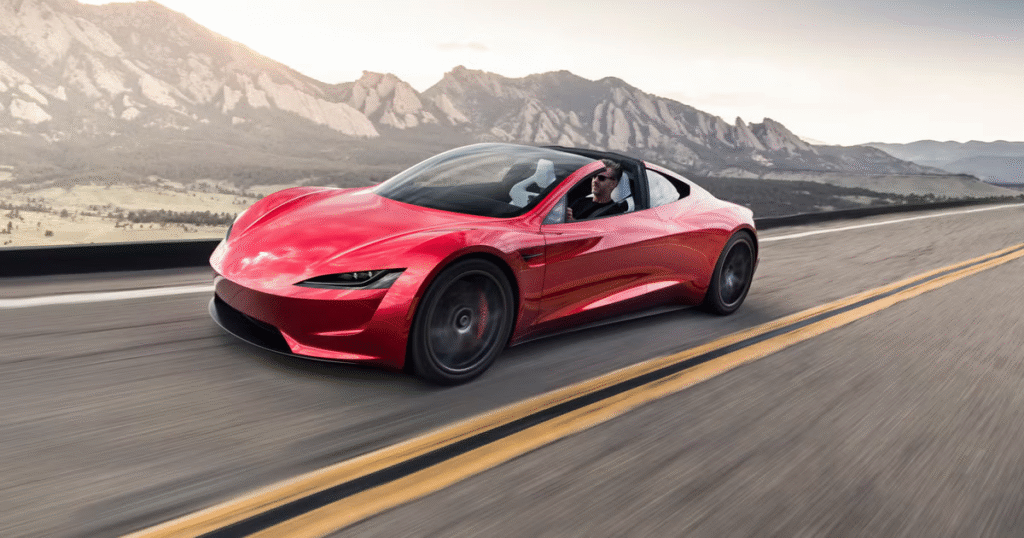
- Expected Launch: 2024
- Category: High-performance sports car
- Specs (estimated):
- 0–60 mph in 1.9 seconds.
- Top speed over 250 mph.
- Range close to 620 miles.
The Roadster will showcase Tesla’s engineering dominance and redefine what a supercar can be in the electric era.
3. Tesla’s Core Technologies

- Autopilot & Full Self-Driving (FSD): Advanced driver assistance systems that bring Tesla closer to fully autonomous driving.
- Tesla OS: A custom operating system that controls everything from climate to driving modes.
- Over-the-Air (OTA) Updates: New features and performance improvements delivered wirelessly.
- Supercharger Network: Global fast-charging infrastructure that can add up to 200 miles in 15 minutes.
4. Global Impact
Tesla has disrupted legacy automakers and forced the entire industry to speed up the transition to electric. Its Gigafactories in the U.S., China, and Germany are producing EVs and battery cells at scale, while other countries—like Mexico and India—are being explored for future expansion.

Tesla’s influence is so profound that even oil-producing nations and gas car giants are investing heavily in EVs to keep pace.
5. Looking Ahead
While Tesla faces increasing competition from companies like BYD, Lucid, Rivian, and traditional automakers, it continues to lead in:
- Brand loyalty
- Software development
- Vertical integration (controlling its supply chain)
- Visionary innovation from Elon Musk
The company’s future may include robotaxis, humanoid robots (Tesla Optimus), and solar energy + home battery solutions, proving it is more than just a carmaker.
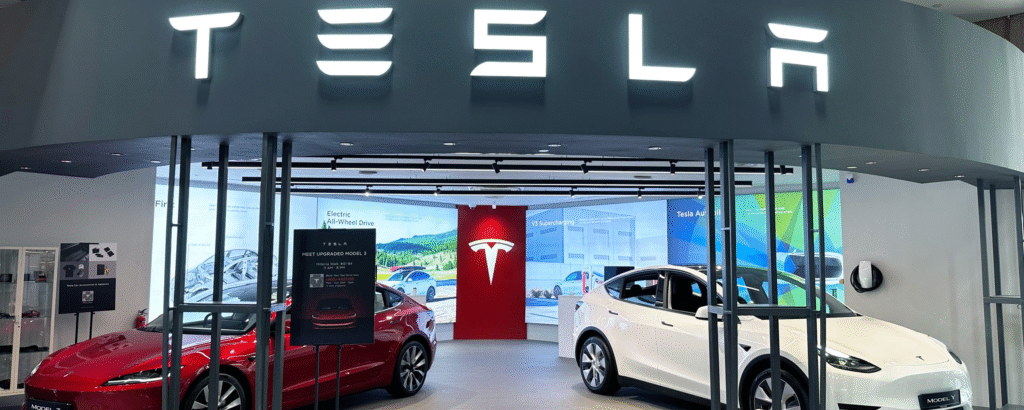
6. Formation and Development
Tesla was founded in 2003 by a group of engineers in California with the goal of producing high-performance electric vehicles. However, the company’s major turning point came in 2004 when Elon Musk joined as an investor and took on a leadership role.
In its early years, Tesla was just a startup facing widespread skepticism from industry experts. But everything changed in 2012 with the launch of the Tesla Model S. The world no longer saw Tesla as a challenger—it recognized it as a leader.
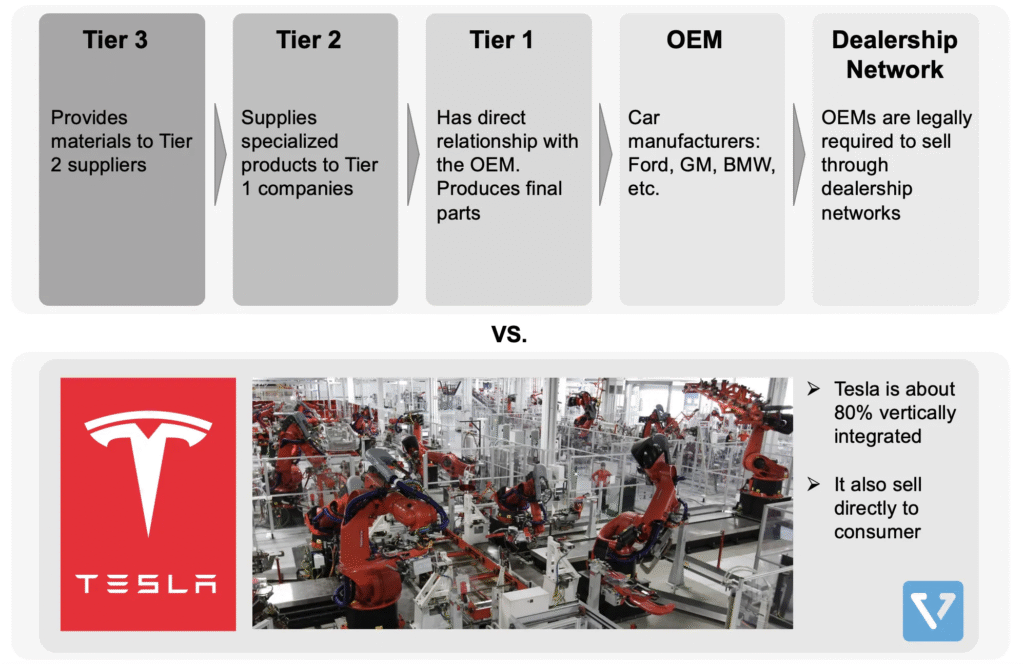
7. Elon Musk’s Unique Vision
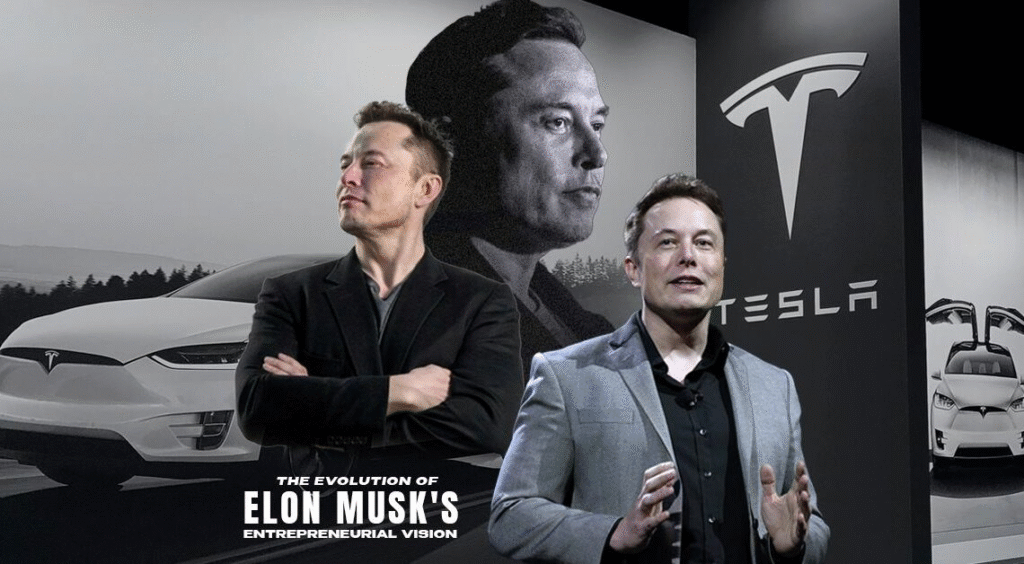
What makes Tesla special is not just its electric vehicles, but its product philosophy:
- Minimalist design, high performance
- No dealerships – direct-to-consumer sales
- Over-the-air (OTA) software updates
- A proprietary operating system that controls the entire vehicle
- Development of autonomous driving (Autopilot, Full Self-Driving)
Each Tesla vehicle is a technology device on wheels, constantly being upgraded like a smartphone—completely different from traditional cars.
8. Tesla’s Iconic Models
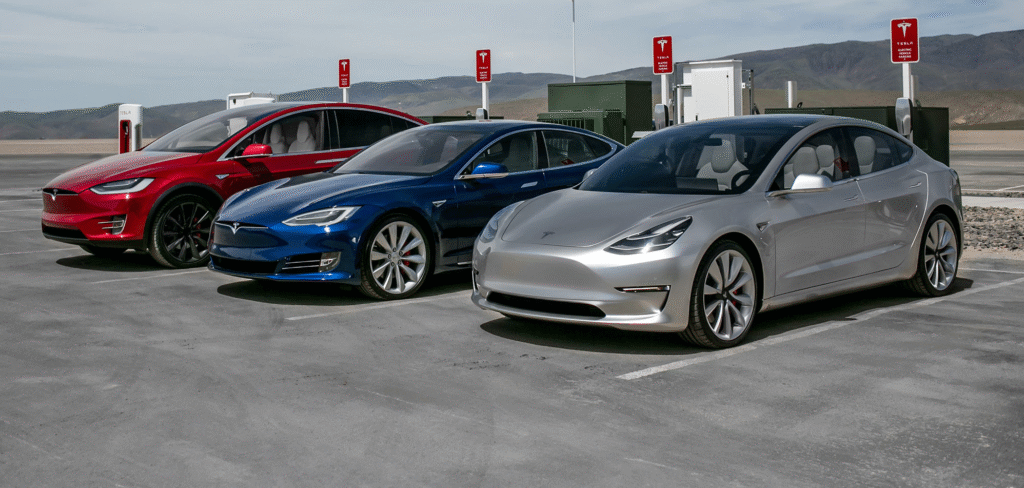
🚗 Model S – High-Performance Luxury Sedan
Launched in 2012, this was the car that introduced Tesla to the world. With acceleration from 0 to 100 km/h in under 2 seconds (Plaid version), it’s one of the most powerful electric cars ever made.
🚙 Model X – The SUV with Falcon Wing Doors
Released in 2015, known for its unique “Falcon Wing” doors, luxurious interior, and the capacity to carry up to seven passengers.
🚘 Model 3 – The Mass-Market Electric Car
Launched in 2017, it offered a more affordable price point, allowing Tesla to reach a broader market. It has been the world’s best-selling electric vehicle for several years in a row.
🚗 Model Y – The Mid-Size Electric SUV
Introduced in 2020, versatile with higher ground clearance, family-friendly, and now Tesla’s most important model in terms of sales and production volume.
🛻 Cybertruck – The Futuristic Electric Pickup
Unveiled in 2019 (prototype), with production starting in late 2023. Built with stainless steel, futuristic design, ultra-durable body, and high performance.
🏎 Roadster (new) – The Ultra-Fast Electric Supercar
Expected to launch in 2024–2025. This electric supercar is projected to exceed 400 km/h and accelerate from 0 to 100 km/h in under 2 seconds.
9. Key Technologies

- Autopilot & Full Self-Driving (FSD): One of the most advanced driver assistance and semi-autonomous driving systems available.
- Tesla OS: Proprietary operating system that manages all features, from climate control to autonomous driving.
- Supercharger Network: A global fast-charging infrastructure that enables full charging within 20–30 minutes.
- Next-gen lithium-ion batteries: Offer longer lifespan, faster charging, and increased range.
10. Global Impact
Tesla has not only built cars—it has set new standards for the entire auto industry. Since Tesla’s success, traditional automakers like Volkswagen, BMW, and Toyota have had to accelerate their electric vehicle development. Tesla also played a major role in prompting countries to adjust policies supporting clean energy.
Currently, Tesla operates factories in the U.S., Germany (Giga Berlin), China (Giga Shanghai), and is expanding into Mexico, India, and Indonesia.

11. Challenges and the Road Ahead
Despite leading the EV industry, Tesla faces several key challenges:
Financial market pressure and high expectations placed on Elon Musk.
Intensifying competition from new EV manufacturers like BYD, Lucid Motors, and Rivian.
Controversies related to self-driving technology and safety concerns.

Conclusion
Tesla has done more than sell electric vehicles—it has inspired a global shift in how we power, build, and think about transportation. From the roads of California to cities around the world, Tesla vehicles are a rolling symbol of innovation, sustainability, and bold vision.

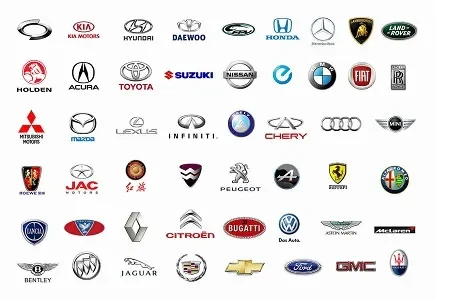


Bình luận gần đây